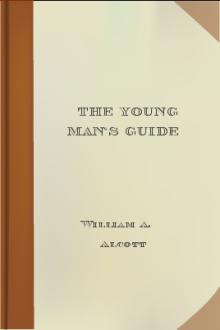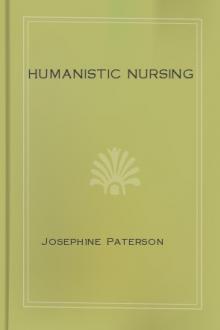Genre Study Aids. Page - 6

shoulders. Its fellow on the other side of the legs is prepared in exactly the same manner; and the second trestle is a duplicate of the first, with the exception that the directions of the struts are reversed relatively to the C piece, to preserve the symmetry--which, however, is not an important point.
[Illustration: FIG. 5.--End elevation of joiner's bench.]
Back and Front.--The only operation to be performed on the front piece B and the back G is the notching of them both on the inside faces at the centre to take the ends of the bearer F, which performs the important function of preventing any bending of the top planks. Lay the boards together, top edges and ends level, and mark them at the same time. The square is then used on the faces to give the limits for the notches, which should be 1/4 inch deep and chiselled out carefully.
Draw cross lines with your square 3 inches from each end of both pieces, on the inside, to show where the legs are to be. Bore holes in the boards for the

hionable education in fault. 6. Sobriety. Definition of the term. An anecdote. Love of mental and bodily excitement usually connected. 7. Industry. How to judge whether a person is industrious. 8. Early rising. A mark of industry. Late rising difficult of cure. 9. Frugality. Its importance shown. 10. Personal Neatness. Its comforts. 11. A good temper. Its importance illustrated. 12. Accomplishments. 263-305
CHAPTER VII.
--CRIMINAL BEHAVIOR.
Section I. Inconstancy and Seduction.--Constancy. Its importance illustrated by an example. Cruelty of sporting with the affections of a female. Opinion of Burgh. 306-313
Section II. Licentiousness.--Most common in cities. New Orleans. Hint to legislators. A horrid picture. Not wholly imaginary. Avoid the first erring step. Example of premature decrepitude. Anecdote of C. S. Solitary vice. This vice compared with intemp

s re-issue of Paterson and {v} Zderad's classic work will help to remind us of another way of developing our power. Perhaps we can, once again, look for and call for authentic dialogue with our patients, our students, and our colleagues. Paterson and Zderad are clear in their method: discuss, question, convey, clarify, argue, and reflect. They remind us of our uniqueness and our commonality. They tell us that it is necessary to do with and be with each other in order for any one of us to grow. They help us celebrate the power of our choices.
Is it ironic and fortunate that Humanistic Nursing should be re-issued now when it is needed even more than it was during the late 1970s? Then, humanitarianism was in vogue. Now, it is under attack as a secular religion.
Today, the technocratic imperative infiltrates an ever-increasing number of our lived experiences; and it becomes more difficult to ignore or dismiss Habermas's analysis that all interests have become technical rather than human.[6]

ssity. Ordinary writing needs some use of commas to indicate the sense and to prevent ambiguity.
Always remember that the real business of the comma is just that of helping the meaning of the words and of preventing ambiguity by showing clearly the separation and connection of words and phrases. If there is possibility of misunderstanding without a comma, put one in. If the words tell their story beyond possibility of misunderstanding without a comma, there is no reason for its use. This rule will serve as a fairly dependable guide in the absence of any well recognized rule for a particular case, or where doubt exists as to the application of a rule.
Reversed, and usually in pairs, commas mark the beginning of a quotation.
In numerical statements the comma separates Arabic figures by triplets in classes of hundreds: $5,276,492.72.
In tabular work reversed commas are used as a sign for ditto.
SCHOOLS TEACHING PRINTING
Boston: Boston Typothetæ School of Printing.

pared. They are good, better, best, and bad, worse, worst. In spite of the fact that these adjectives are among the most common in use and their comparison may be supposed to be known by everybody, one often hears the expressions gooder, goodest, more better, bestest, bader, badest, worser, and worsest. Needless to say, these expressions are without excuse except that worser is sometimes found in old English.
Illiterate people sometimes try to make their speech more forceful by combining the two methods of comparison in such expressions as more prettier, most splendidest. Such compounds should never be used.
Some adjectives are not compared. They are easily identified by their meaning. They indicate some quality which is of such a nature that it must be possessed fully or not at all, yearly, double, all. Some adjective

ivation of mushrooms. Florists need the loam and manure anyway, and these are just as good for potting purposes--better for young stock--after having been used in the mushroom beds than they were before, so that the additional expense in connection with the crop is the labor in making the beds and the price of the spawn. Mushrooms are not a bulky crop; they require no space or care in summer, are easily grown, handled, and marketed, and there is always a demand for them at a good price. If the crop turns out well it is nearly all profit; if it is a complete failure very little is lost, and it must be a bad failure that will not yield enough to pay for its cost. Why should the florist confine himself to one crop at a time in the greenhouse when he may equally well have two crops in it at the same time, and both of them profitable? He can have his roses on the benches and mushrooms under the benches, and neither interferes with the other. Let us take a very low estimate: In a greenhouse a hundred feet long make

tant. Laugh a little, you know, and hold on to my arm."
Marilee's fingers were cold on Dikar's arm, but her laugh rippled like a little stream running over pebbles in its bed. They walked slowly away from the fire reached the shadowy edge of the woods, were closed around by the forest darkness.
"Now!" Dikar said, and he was flitting through the forest night, Marilee a silent shadow behind him. It was like her to stay close behind, like her to ask no questions as he ran through the woods to the cave again.
At the cave-mouth Dikar stopped a moment, sniffing the air. "Yes," he said, more to himself than to Marilee. "I can still smell the smoke of the fire-stick. The wet night air holds smells a long time." Then he was moving again, following the sharp tang of smoke in the air, following it away from the cave and away from the clearing.
The scent-trail led him downhill. Soon the laugh of a streamlet came to his ears and then Dikar pushed through tangling bushes and came out into starli

new civilization. Morning is still the most universal figure of progress, the type of a new life. More than all other natural occurrences it is used as a symbol of something higher.
May we not, accordingly, discover that from a psychological as well as a physiological point of view, for reasons of health and development, morning is the most significant and important time of the day!
No human being at the first moment of awakening is gloomy or angry. Everyone awakes in peace with all the world. It is a time of freedom. A moment later memory may bring to the mind some scene or picture that leads to good or bad thought, followed by emotion. This first moment of consciousness is the critical and golden moment of human life. How often has it been said to a child: "You must have gotten out of the wrong side of bed this morning."
Even animals and birds feel the significance of morning. Who has not, at early dawn, heard a robin or some other bird begin to sing--"at first alone," as Thomas Hardy

naudibly to himself, lifting the page a little at a time and sliding one of the transparent plastic sheets under it, working with minute delicacy. Not the delicacy of the Japanese girl's small hands, moving like the paws of a cat washing her face, but like a steam-hammer cracking a peanut. Field archaeology requires a certain delicacy of touch, too, but Martha watched the pair of them with envious admiration. Then she turned back to her own work, finishing the table of contents.
The next page was the beginning of the first article listed; many of the words were unfamiliar. She had the impression that this must be some kind of scientific or technical journal; that could be because such publications made up the bulk of her own periodical reading. She doubted if it were fiction; the paragraphs had a solid, factual look.
At length, Ivan Fitzgerald gave a short, explosive grunt.
"Ha! Got it!"
She looked up. He had detached the page and was cementing another plastic sheet onto it.

lo sun | suno | soo'no thaw | degelo | deh-geh'lo thunder | tondro | tohn'dro weather | vetero | veteh'ro west | okcidento | ohk-tsee-dehn'toh wind | vento | vehn'toh
2. Land and Water. (La Tero kaj la Akvo.)
English. | Esperanto. | Pronunciation. -------------------+-------------------------+------------------------ Bay | golfeto | golf-eh'toh beach | marbordo | mahrbohr'doh canal | kanalo | kanah'lo cape | terkapo | tehr-kah'po cliff | krutegajxo | kroo-teh-gah'zho coast | marbordo | mahr-bohr'doh creek | kriko | kree'ko current | akvofluo | ahk'vo-floo'oh ebb | malfluso | mahl-floo'so flood (deluge) | inundo | in-oon'doh -- (of the tide) | fluso | floo'so flow | fluo | floo'oh foam | sxauxmo | shahw'mo hill | monteto | mohn-teh'toh ice | glacio | glaht-see'oh island | insulo | in-soo'lo la